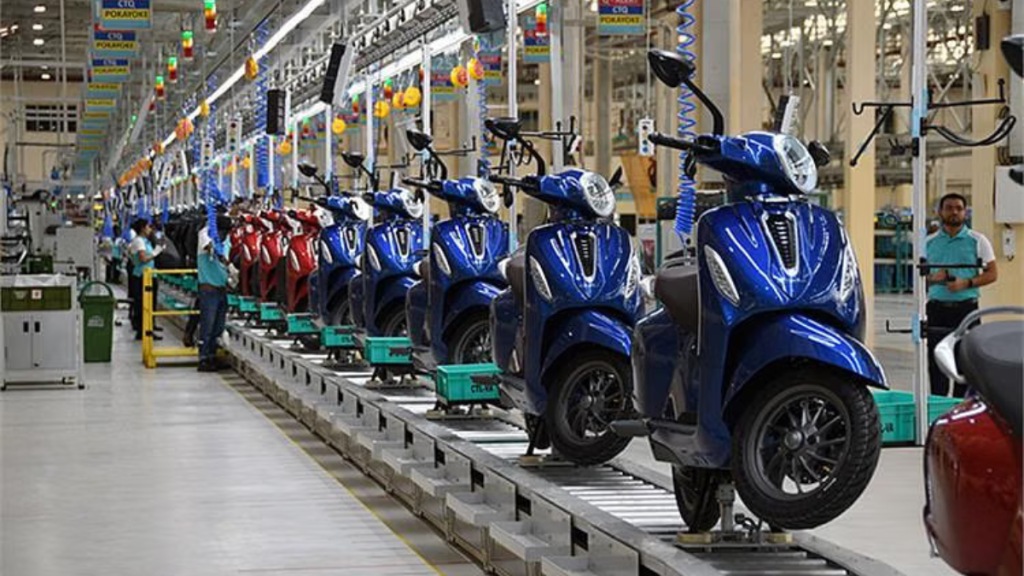Bajaj Auto has slipped to fifth place in August electric two-wheeler (E2W) sales, so far, losing its No. 2 spot for the first time this fiscal. Volumes are understood to have been weak following disrupted supplies of rare earth magnets after China imposed a curb on exports.
The Chetak brand of e-scooter maker has sold 7,069 units in August (until August 20), capturing a 12% market share—down from 16,818 units and a 19% share a year ago. In July, Bajaj Auto had sold 19,754 units with a 19% share, holding on to the second position since the start of FY25.
What did Rajiv Bajaj say?
The drop comes just weeks after MD Rajiv Bajaj warned that an acute shortage of heavy rare-earth magnets—critical to EV motors—could bring production to a standstill in August. Bajaj had also flagged that switching to alternative suppliers or redesigning components would be costly and time-consuming, particularly with the festive season approaching. Fortunately, supplies of rare earth magnets will resume with China promising to ease export curbs.
Anther Energy climbs ahead of Ola Electric
Meanwhile, Bengaluru-based Ather Energy has climbed to the No. 2 spot in August, so far, surpassing Ola Electric for the first time. The company sold 10,283 units, capturing a 17% market share of the 60,328 E2Ws sold in August (until August 20).
Ather, which had also warned of short-term supply disruption due to China’s ban, managed to soften the impact with existing inventory. CEO Tarun Mehta said the company is exploring long-term fixes, including partial motor assembly in China, transitioning to heavy, rare-earth-free magnets, and shifting to ferrite-based technologies.
Much of Ather’s gains came from its family-focused Rizta scooter, which now accounts for 60% of sales. The company is fast-tracking expansion in North and West India to complement its traditionally strong southern base. Its new Battery-as-a-Service (BaaS) option—pricing the Rizta as low as ₹75,999 and the 450 series from ₹84,341 excluding battery cost—is also expected to drive growth. Customers pay for the scooter upfront and subscribe to a monthly battery plan starting at ₹1 per km.
Volumes at Ola Electric have been muted amid intensifying competition, regulatory scrutiny over Vahan registration mismatches, and persistent after-sales complaints. Its shares fell over 8% to ₹48.75 on Thursday on the NSE.
TVS Motor, meanwhile, has extended its dominance for the fifth consecutive month. Director and CEO KN Radhakrishnan has said the company has adequate inventory to support production in the near term and that it is working on alternative magnet technologies and sourcing partnerships, including in India.
